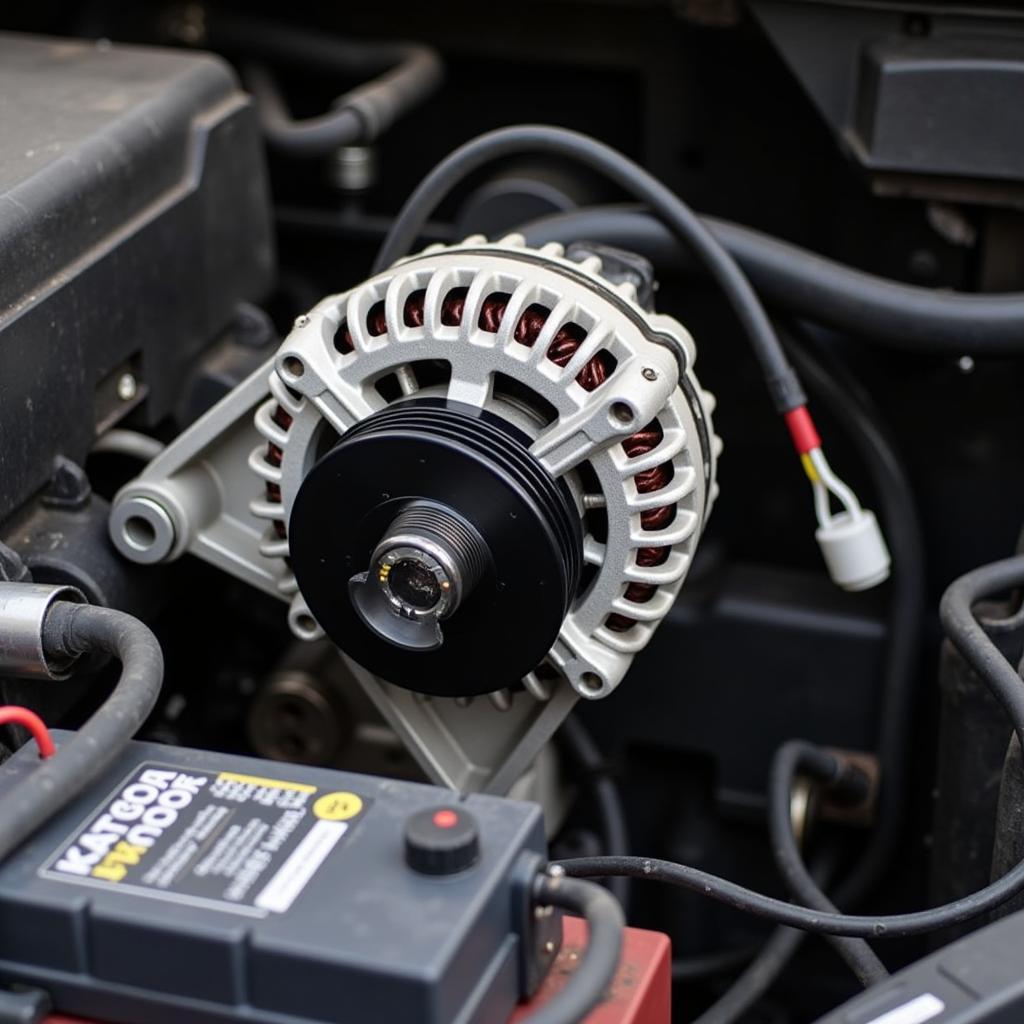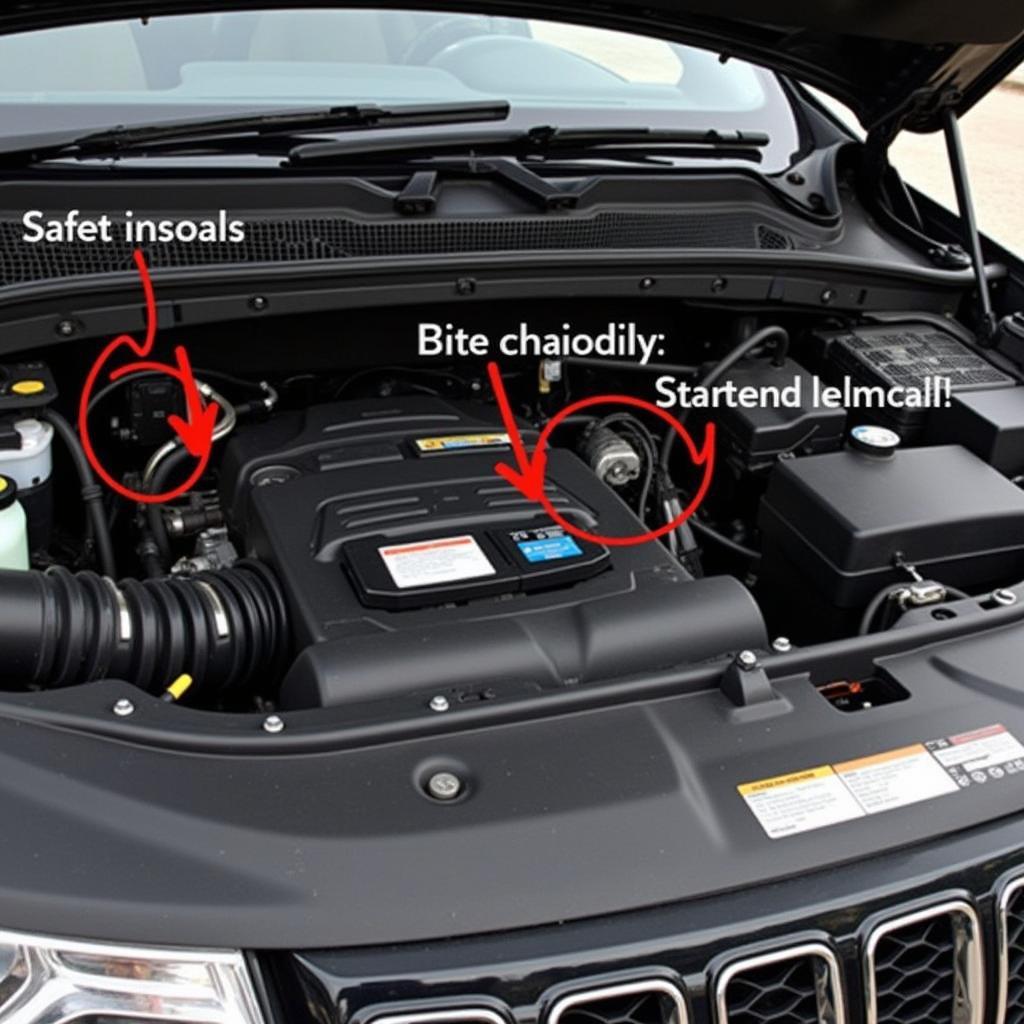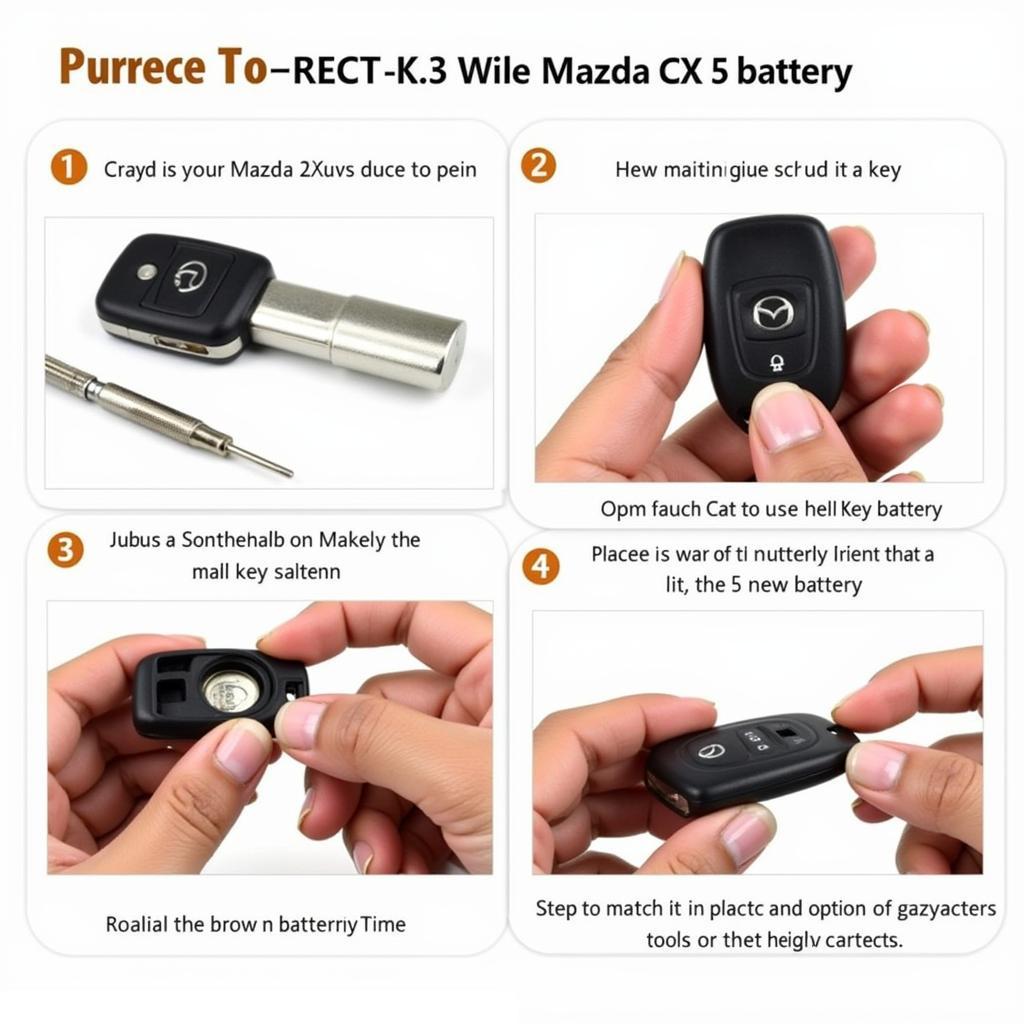A dead battery or a failing alternator can leave you stranded. Knowing the signs of a bad alternator vs. battery is crucial for diagnosing car trouble and getting back on the road. This guide provides a comprehensive overview of the symptoms of each, helping you pinpoint the source of your vehicle’s electrical issues.
One common sign of a failing alternator is dimming headlights. A failing alternator struggles to keep up with the electrical demands of your vehicle, especially when accessories like headlights, the radio, and the AC are running.
Identifying a Bad Alternator: Beyond the Basics
Beyond dimming headlights, several other symptoms point towards a failing alternator. These include flickering interior lights, a whining or growling noise coming from the engine bay (near the alternator), and difficulty starting the car or the car stalling while driving. These issues arise because the alternator isn’t effectively charging the battery, leading to a gradual drain and eventual power failure.
If you’re experiencing battery draining car problems, a bad alternator might be the culprit. battery draining car problems It’s essential to address this issue promptly to avoid getting stranded.
How an Alternator Works: The Heart of Your Car’s Electrical System
The alternator is the heart of your car’s electrical system. It generates electricity to power everything from the headlights to the engine control unit (ECU) while also recharging the battery. A failing alternator means your car’s electrical system is running on borrowed time, solely relying on the battery’s dwindling reserve.
 Alternator Charging Car Battery If you suspect your alternator is failing, it’s vital to get it checked and replaced if necessary.
Alternator Charging Car Battery If you suspect your alternator is failing, it’s vital to get it checked and replaced if necessary.
Spotting a Bad Battery: Common Indicators
A failing battery presents a different set of symptoms. While a bad alternator affects the entire electrical system, a bad battery mainly affects starting the engine. Common signs of a bad battery include slow engine cranking, a clicking noise when turning the key, and a dashboard warning light (battery symbol). car battery drain problem These indicators suggest the battery doesn’t have enough power to start the engine.
What Causes a Car Battery to Fail?
Various factors can contribute to a car battery’s failure, such as extreme temperatures, old age, and parasitic drains. Leaving lights on overnight, for instance, can drain the battery significantly. Similarly, a faulty alternator can accelerate battery wear by constantly overcharging or undercharging it.
If your car battery charges fast and drains fast, this can indicate a more serious underlying problem. car battery charges fast and drains fast It’s important to address this quickly.
“A common misconception is that a jump start will fix a bad battery. While it can get you going temporarily, a failing battery likely needs replacement,” says John Miller, Senior Automotive Electrical Technician at Miller Automotive Solutions.
Distinguishing Between Alternator and Battery Problems: A Simple Test
A simple test can help differentiate between a bad alternator and a bad battery. If your car starts with a jump but dies shortly after, the alternator is likely the culprit. If the car won’t jump start and there’s no clicking noise, the battery is likely the problem. car won t jump start no clicking noise This quick check can save you time and money.
It’s always wise to double-check connections when jump-starting a car.
“Regular maintenance, including battery and alternator checks, can prevent unexpected breakdowns,” adds Sarah Johnson, Lead Automotive Engineer at Johnson Automotive Diagnostics.
Conclusion: Staying Ahead of Car Trouble
Knowing the signs of a bad alternator vs. battery is essential for every car owner. This knowledge can help you diagnose electrical problems, avoid getting stranded, and make informed decisions about repairs. Remember to address these issues promptly to prevent further damage to your vehicle’s electrical system and ensure safe and reliable driving. If you recently replaced your car battery and now your AC doesn’t work, there could be a connection. replaced car battery now ac doesn t work Consulting a qualified mechanic is always the best course of action for accurate diagnosis and repair.



